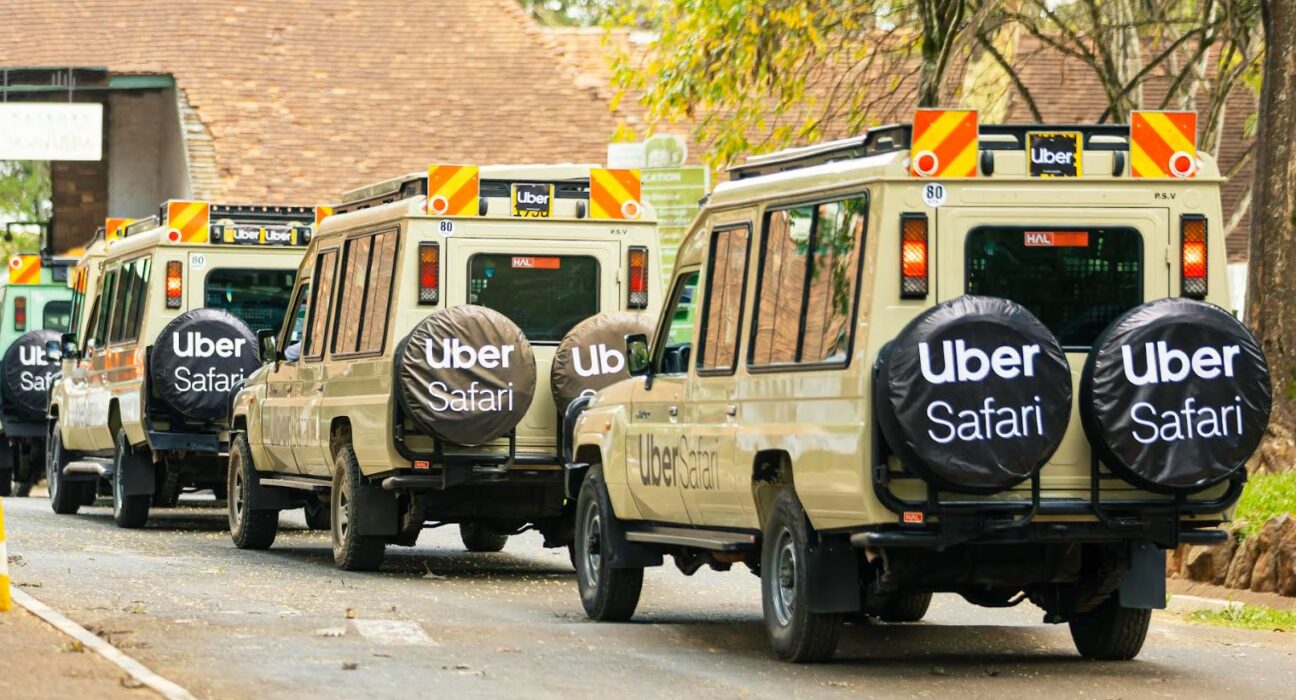Uber has unveiled Uber Safari, a new product category offering tailored wildlife experiences in Nairobi National Park, the world’s only national park located within a capital city.
The launch, announced as part of Uber’s 10-year anniversary in Kenya, aims to blend technology with tourism by making safaris more accessible to both locals and international visitors. The move also underscores Uber’s strategy to develop locally relevant innovations while supporting Kenya’s critical tourism industry.
A New Way to Explore Nairobi National Park
With Uber Safari, riders can choose between two experiences — a Day Safari or a Night Safari — both available through the Uber app. Using Uber Reserve, customers can pre-book their trips, after which they are picked up in a safari-ready, fully licensed Land Cruiser operated by vetted tour companies.
Each trip includes a licensed guide and a three-hour wildlife experience, creating a seamless connection between urban Nairobi and the wilderness.
The service is being rolled out in partnership with the Ministry of Tourism, Kenya Wildlife Service (KWS), the Tourism Regulatory Authority, and trusted local fleet operators, ensuring safety, quality, and compliance with Kenya’s sustainable tourism standards.
“Tourism plays a vital role in Kenya’s economy, and with Uber Safari, we are excited to unlock new ways for people to connect with our incredible wildlife heritage,” said Imran Manji, General Manager for Uber in East Africa. “This product is designed to make safaris more accessible and convenient, while driving new earning opportunities for drivers and communities that rely on tourism.”
A Decade of Uber in Kenya
Since entering the Kenyan market in 2015, Uber has become a major economic enabler, contributing an estimated KSh 14.1 billion to the economy in 2023 alone. According to Uber, drivers on the platform earn on average 37% more than their next best alternative, showcasing the company’s impact on livelihoods.
Uber Safari adds to this legacy by tapping into Kenya’s most important foreign exchange earner — tourism, which contributes about 10.4% of GDP and 5.5% of formal employment.
“Kenya is one of Uber’s most important markets in Africa, and we are proud to celebrate this milestone with a product that truly embodies innovation rooted in local culture,” said Anabel Díaz, Uber’s Vice President for Europe, Middle East, and Africa. “Uber Safari demonstrates how technology and tradition can work hand in hand to deliver meaningful impact.”
Boost for Local Tour Operators
A key aspect of the product is its collaborative model with local tour operators. By opening the platform to safari fleet owners, Uber Safari allows Land Cruiser operators to onboard their vehicles, gaining direct access to Uber’s global rider base and booking technology.
This approach not only enhances convenience for travelers but also empowers small and medium-sized businesses in Kenya’s tourism ecosystem.
In 2023 alone, the Uber app facilitated KSh 2.7 billion in additional value for Kenya’s tourism sector, helping drive millions of trips by both domestic and international tourists.
With Uber Safari, the company hopes to scale this impact further by creating new earning opportunities for guides, drivers, and fleet operators while strengthening Kenya’s reputation as a top global tourism destination.
The Bigger Picture
Kenya’s tourism industry is rebounding strongly after the pandemic, driven by increasing international arrivals and domestic travel. Products like Uber Safari align with the government’s agenda to diversify tourism experiences, improve accessibility, and integrate technology into visitor services.
For Uber, the launch of Uber Safari reinforces its strategy of evolving beyond ridesharing to become a comprehensive mobility and lifestyle platform. In doing so, it strengthens its role not just as a transport enabler, but as a partner in national economic growth.
As Kenya looks to the future, Uber Safari represents more than just a new app feature — it is a symbol of how digital innovation can transform traditional industries, generate livelihoods, and create unforgettable experiences that connect people to nature.





